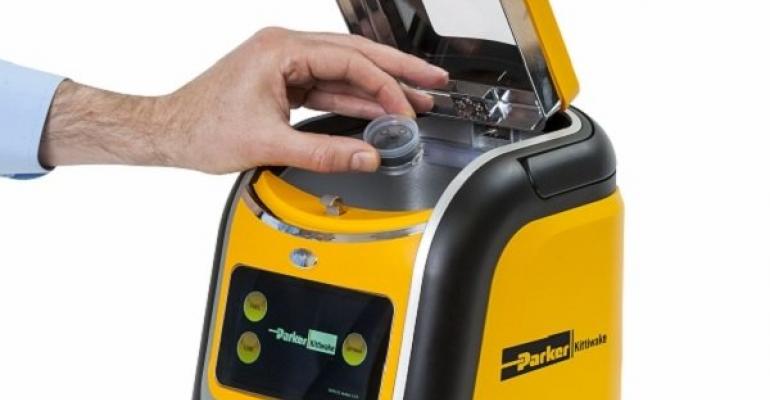The portable device, which is small enough to fit into an overhead locker on a plane or to be carried up a ship’s side on a Jacob’s ladder, analyses the sulphur content in fuel to an accuracy of four decimal places. Using X-ray fluorescence technology to analyse a small sample, the device provides a laboratory-quality result, to ISO 8754 standard, in just two minutes.
Larry Rumbol, Condition Monitoring Market Development Manager (Marine) at Parker Kittiwake believes the XRF Analyser will transform today’s bunker industry which is plagued by contaminated fuels and a growing threat to ship safety. The device analyses not only bunker fuel sulphur content, but also a range of other contaminants and potentially damaging elements in luboils, including chromium, copper, iron, lead, nickel and tin.
Read More: ClassNK launches bunker fuel analysis service
“We are bringing the laboratory to the ship,” Rumbol declares, “and we are applying the latest science to provide real-time data within minutes without the risk of human error or interference. The XRF Analyser has the potential to identify off-spec fuels and ensure sulphur compliance as ships take bunkers on board, from bunker tanks ashore or on board, and to verify that the fuel supplied actually matches that which is described on the bunker delivery note. This is a game-changer for ship operators, charterers, surveyors, ports and terminals, and flag state compliance authorities.”
Independent sources suggest that the XRF Analyser will be welcomed by the marine insurance community which is currently handling a record number of claims and disputes relating to fuel quality. It has even been suggested that some fuel-related claims may not be settled in the future unless a ship operator or charterer can demonstrate to underwriters that suitable due diligence was undertaken at the time that bunkers were delivered.
Copyright © 2024. All rights reserved. Seatrade, a trading name of Informa Markets (UK) Limited. Add Seatrade Maritime News to your Google News feed.


